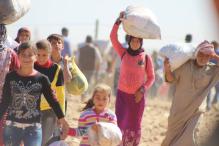Despite decades of international support to assist individuals and groups exiting armed conflict, significant questions remain as to whether such interventions work effectively and if so, under which conditions. One key aspect of the transition to civilian life is the level of acceptance of ex-combatants into their communities and their formation of new ties. In some contexts, ex-combatants and formerly associated individuals report feeling stigmatized and discriminated against after their involvement in conflict.
Social ostracisation can have implications for feelings of self-worth and personal relationships, but there are also important economic, educational, and physical health implications that stem from social, service, and market exclusion. Feeling stigmatized may also impact an ex-combatant or formerly associated individual's broader social well-being (e.g., their ability to trust their community or contribute to the public goods).
Furthermore, evidence suggests that the level of acceptance of ex-combatants/associated individuals from their family and communities assists their ability to expand their social networks, which is a major determinant in limiting the risk of recidivism. Despite this recognition of the importance of community for reintegration success, there remains a lack of systematic collection of data on community receptivity that could be used to strengthen interventions that support individuals’ transition to civilian life.
The Managing Exits from Armed Conflict (MEAC) initiative at UNU-CPR was created to answer this call and help fill this information gap. MEAC is a multi-year collaboration to develop a unified, rigorous approach to examining how and why individuals exit armed conflict and evaluate the efficacy of interventions meant to support their transitions to civilian life (e.g. DDR, reintegration). In Phase I, MEAC developed a common approach to assessment of UN programming in this area. In Phase II, MEAC is piloting this methodology in Nigeria and Colombia. This discussion will examine early findings from the MEAC project’s work in Nigeria and Colombia, and research findings from other projects in which efforts have been made to understand community member perceptions and living conditions in the context of reintegration interventions.
This discussion - organized as part of King's College London's Conflict, Security & Development Research Group Speakers Series - examined early findings from the MEAC project’s work in Nigeria and Colombia, and research findings from other projects in which efforts have been made to understand community member perceptions and living conditions in the context of reintegration interventions.



